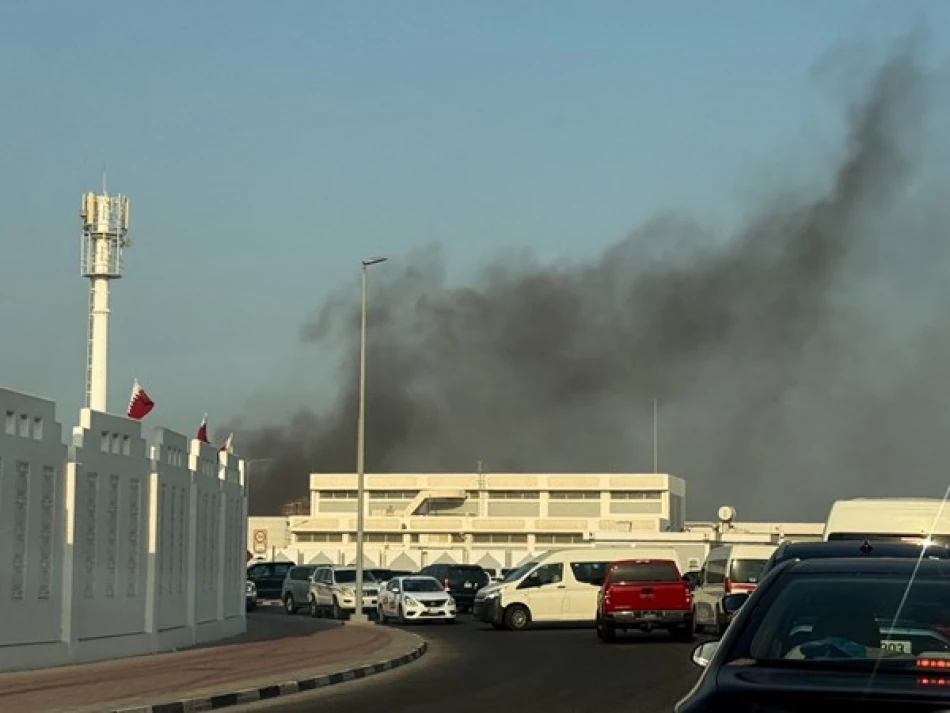
Qatar Condemns Israeli Airstrike Targeting Residential Sites in Doha
Qatar Condemns Israeli Strike on Hamas Officials' Residences in Doha as "Reckless Escalation"
Qatar has issued its strongest condemnation of an Israeli attack targeting residential compounds housing Hamas political bureau members in Doha, calling it a "criminal aggression" that violates international law and threatens regional stability. The unprecedented strike on Qatari soil marks a dangerous escalation that could reshape Middle Eastern diplomatic relations and complicate ongoing ceasefire negotiations.
Direct Challenge to Qatari Sovereignty
The attack represents a brazen violation of Qatar's territorial integrity, striking at the heart of the Gulf state's capital. Qatari authorities immediately mobilized security forces, civil defense units, and specialized agencies to contain the incident's aftermath and ensure the safety of residents and surrounding areas.
This marks the first known Israeli military operation on Qatari territory, crossing a red line that could fundamentally alter the security architecture of the Gulf region. Qatar's foreign ministry emphasized that investigations are proceeding at the highest levels, with additional details to be released as they become available.
Implications for Regional Mediation Efforts
Qatar's Role as Middle East Broker at Risk
The strike threatens to undermine Qatar's carefully cultivated position as a neutral mediator in Middle Eastern conflicts. For years, Doha has hosted Hamas political leaders while simultaneously maintaining diplomatic channels with Israel and serving as a key intermediary in prisoner exchanges and ceasefire negotiations.
This delicate balancing act has made Qatar indispensable to international peace efforts, particularly in Gaza-related diplomacy. The attack could force Doha to reconsider its mediation role, potentially eliminating one of the few remaining diplomatic bridges between Israeli and Palestinian factions.
Precedent for Cross-Border Operations
The operation follows Israel's pattern of targeted eliminations across the region, similar to strikes in Lebanon, Syria, and Iran. However, targeting Qatar—a U.S. ally and host to American military bases—represents a significant escalation that could complicate Washington's regional strategy.
Unlike previous operations in conflict zones, this strike occurred in a stable Gulf monarchy with strong international ties, potentially setting a precedent for expanded Israeli operations beyond traditional theaters.
Economic and Security Ramifications
Gulf Security Concerns
The attack raises serious questions about security guarantees for Gulf Cooperation Council members. If Israel can conduct operations in Qatar with apparent impunity, other Gulf states hosting sensitive political figures or maintaining controversial diplomatic relationships may reassess their security postures.
This could drive increased defense spending across the Gulf and potentially accelerate regional military cooperation agreements, particularly with non-Western partners who offer alternative security arrangements.
Energy Market Stability
Qatar's position as a major liquefied natural gas supplier makes regional instability a global concern. While the immediate impact on energy markets may be limited, sustained tensions could affect investor confidence in Gulf energy infrastructure and supply chain reliability.
The incident underscores the vulnerability of critical energy infrastructure in an increasingly volatile region, potentially influencing long-term investment decisions and energy security planning in consumer nations.
Diplomatic Fallout and International Response
Qatar's strong condemnation signals a potential shift in its traditionally cautious diplomatic approach. The emirate's promise not to tolerate "reckless Israeli behavior" suggests a harder line that could complicate future negotiations and regional diplomatic initiatives.
The international community's response will be crucial in determining whether this incident remains an isolated escalation or triggers a broader diplomatic crisis. Qatar's extensive international partnerships, from hosting the World Cup to mediating in Afghanistan, give it significant leverage to seek international accountability.
This attack may ultimately force a recalibration of Middle Eastern diplomatic relationships, with Qatar potentially adopting a more confrontational stance toward Israel while strengthening ties with other regional powers who view Israeli operations as destabilizing.
Most Viewed News

 Layla Al Mansoori
Layla Al Mansoori






